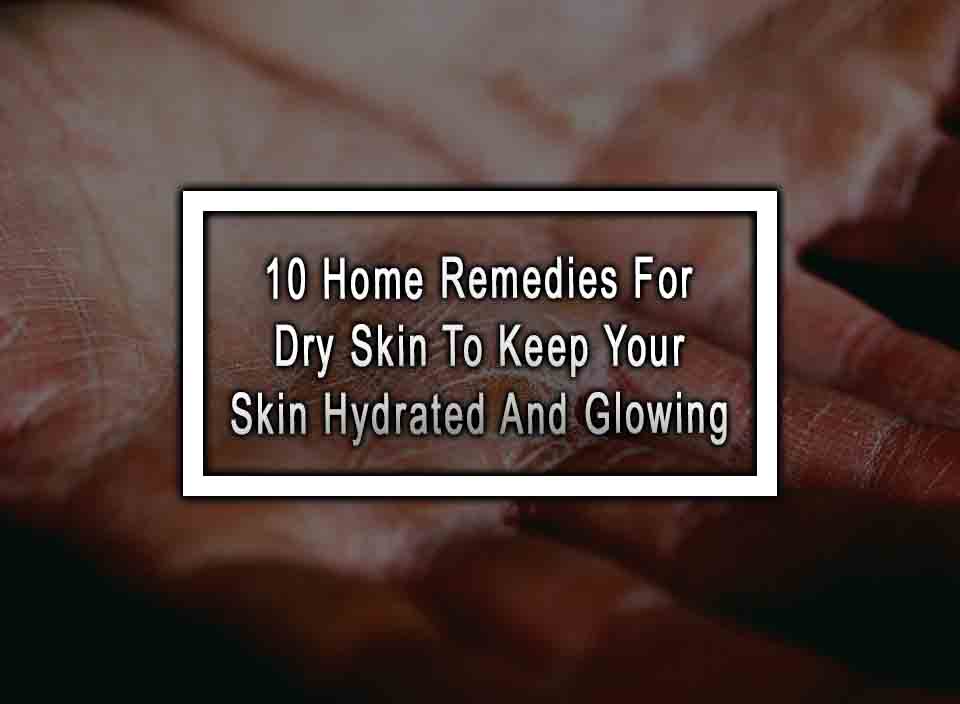Table of Contents
ToggleSay Goodbye to Dryness: Discover Effective Home Remedies for Dry Skin
Being one of the most common skincare issues, dry skin can cause discomfort and make your skin look dull and lifeless. But worry not! Instead of reaching for expensive lotions or creams, why not try some natural and effective home remedies for dry skin? From nourishing ingredients in your kitchen pantry to simple skincare routines, we’ve got you covered with these fantastic remedies.
1. Hydrate from Within: Drink Plenty of Water
Staying properly hydrated is vital for maintaining healthy skin. Drinking an adequate amount of water each day keeps your skin hydrated from within, combating dryness and promoting a youthful glow. Aim to drink at least 8 glasses of water daily and increase your intake during hot summer months or in dry environments.
2. Incorporate Healthy Fats into Your Diet
Dry skin can benefit from incorporating foods rich in healthy fats into your diet. Omega-3 fatty acids found in salmon, avocados, walnuts, and flaxseeds help boost skin’s natural oil production and improve moisture retention. Adding these foods to your meals can work wonders for dry skin.
3. Soothe Your Skin with Aloe Vera Gel
Aloe vera gel, known for its soothing and hydrating properties, is an excellent remedy for dry skin. Apply pure aloe vera gel directly on the affected areas and leave it on for around 15-20 minutes before rinsing off with lukewarm water. Repeat this remedy a few times a week for soft, moisturized skin.
4. Lock in Moisture with Honey
Honey is a natural humectant that attracts and retains moisture in the skin. Create a homemade face mask by mixing one tablespoon of honey with a few drops of lemon juice. Apply the mixture to your face, leave it on for 15 minutes, and then rinse off with warm water. Enjoy its moisturizing benefits and radiant complexion.
5. Bathe Wisely: Avoid Hot Showers
While hot showers may be tempting during colder months, they can strip your skin of natural oils, exacerbating dryness. Opt for lukewarm water instead and limit showers or baths to 10-15 minutes to prevent moisture loss. After bathing, gently pat your skin dry and apply a moisturizer while it’s still slightly damp to lock in hydration.
6. Exfoliate Gently with Oatmeal
A gentle exfoliation can help remove dead skin cells and promote a healthier skin barrier. Oatmeal is a fantastic natural exfoliant that also nourishes and hydrates the skin. Mix ground oatmeal with a little water or yogurt to create a paste. Gently massage it onto your skin in circular motions, leave it for 10 minutes, and rinse off for a smoother, more radiant complexion.
7. Coconut Oil: A True Skin Savior
Coconut oil is a versatile remedy for various skin conditions, including dryness. Apply a small amount of coconut oil to your dry skin after a shower or before bedtime, and gently massage until absorbed. The oil’s fatty acids help replenish the skin’s moisture levels and can even improve certain skin conditions like eczema.
8. Alleviate Dryness with Olive Oil
Rich in antioxidants and healthy fats, olive oil is a great home remedy for dry skin. Apply a few drops of extra virgin olive oil to your face or body and massage it gently. Leave it on for 30 minutes before rinsing off with lukewarm water. This remedy can help restore moisture and leave your skin feeling soft and supple.
9. DIY Avocado Face Mask for Intense Hydration
Avocado, with its high-fat content, vitamins, and minerals, serves as a perfect ingredient for a nourishing face mask. Mash half an avocado and mix it with one teaspoon of honey and a tablespoon of plain yogurt. Apply the mixture to your face, leave it on for 15 minutes, and then rinse off. Say goodbye to dryness and hello to a revitalized, hydrated complexion.
10. Stay Consistent with Moisturization and Sun Protection
Consistency is key in combating dry skin. Invest in a good quality moisturizer suitable for your skin type and apply it liberally after cleansing or bathing. Additionally, don’t forget to apply sunscreen with at least SPF 30 whenever you step out, as sun exposure can further dehydrate your skin. Regular moisturization and sun protection are crucial for maintaining healthy, hydrated skin.
Conclusion
With these fabulous home remedies for dry skin, you can bid farewell to dryness and welcome a moisturized, glowing complexion. Remember, staying hydrated, incorporating beneficial ingredients into your diet, and following a diligent skincare routine are essential for combating dry skin. Give these remedies a try and let your skin shine with hydration and vitality!
Home Remedies For Dry Skin FAQ
Here are the most common questions about home remedies for dry skin.
1. What are some common causes of dry skin?
Common causes of dry skin include cold weather, low humidity, excessive bathing or showering, use of harsh soaps or detergents, hot water, certain medications, aging, and underlying medical conditions such as eczema or psoriasis.
2. What types of moisturizers are best for dry skin?
For dry skin, it’s recommended to use thick, oil-based moisturizers or creams that help to lock in moisture. Look for moisturizers that contain ingredients like shea butter, cocoa butter, or jojoba oil. It’s also helpful to apply moisturizer immediately after bathing to seal in moisture.
3. Can diet affect dry skin?
Yes, diet can play a role in maintaining healthy skin. Consuming a balanced diet that includes foods rich in essential fatty acids (such as fish, nuts, and seeds), vitamins A, C, and E (found in fruits and vegetables), and drinking plenty of water can help nourish and hydrate the skin.
4. What are some lifestyle changes I can make to improve dry skin?
Making some simple lifestyle changes can help improve dry skin. These include avoiding prolonged exposure to hot water, using a mild cleanser instead of harsh soaps, avoiding harsh fabrics and laundry detergents, wearing sunscreen when outdoors, and avoiding excessive use of heating or air conditioning.
5. When should I seek medical help for my dry skin?
If home remedies and lifestyle changes don’t seem to improve your dry skin or if you experience severe itching, inflammation, or infections, it’s recommended to seek medical help. A dermatologist can offer a proper diagnosis and suggest appropriate treatment options for your specific condition.












